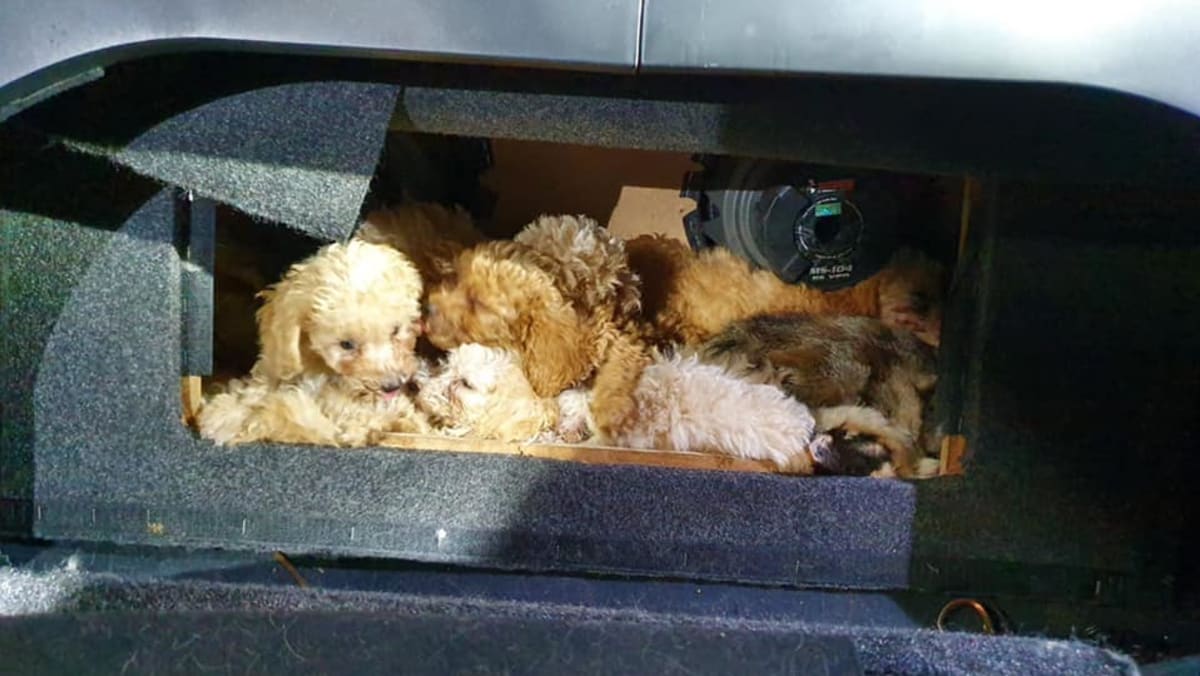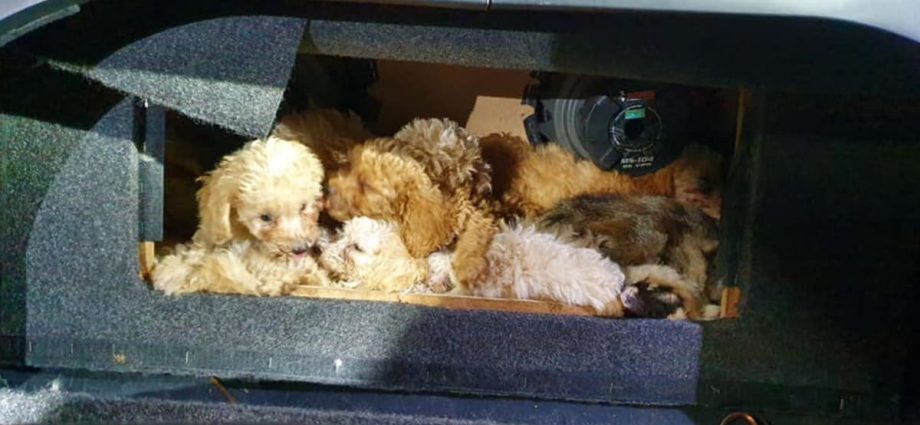
Prices of puppies and kittens at the pet shops ranged between RM1,800 and RM6,000.
Such prices are far below the cost of pets in Singapore, which can easily go up to five digits, even amid falling demand. CNA reported in December last year that prices of puppies and kittens that reached a high during the height of the pandemic in 2020 are beginning to fall as travel and working from the office resume.
Still, the price of a pet in Singapore will exceed its Malaysian counterpart. A toy poodle or pomeranian in Singapore could be upwards of S$3,000, while the equivalent in Malaysia could cost as little as S$550.
A British shorthair kitten in Malaysia sells for less than S$600, while the equivalent in Singapore is at least S$3,000, checks of four catteries showed.
SAFEGUARDING ANIMAL HEALTH
Singapore authorities told CNA that the import of all animals requires approval from the National Parks Board (NParks).
Besides having the required vaccinations, the animals must be certified healthy, have no signs of infectious diseases and be fit for travel, NParks and the Immigration and Checkpoints Authority (ICA) said in a joint statement.
Cats and dogs brought in from JB must undergo rabies vaccination and inspections, and be quarantined for at least 30 days. Malaysia is within the category of countries that Singapore considers to have an “undetermined risk” of rabies.
Rabies is a fatal viral disease that can be transmitted to humans through the bite of a rabid animal. Singapore has been free of rabies since 1953, according to NParks’ website.
Pets may carry other contagious diseases, such as the canine distemper virus or feline parvoviral infection, which is easily spread to other pets.
Quarantine spaces at the Animal Quarantine Centre must be reserved in advance, and costs S$16.80 a day for a non-air-conditioned space for a dog or cat, and S$26.25 for an air-conditioned space.
Rabies vaccination costs S$65. Transporting the dog or cat from Tuas Checkpoint – the only land checkpoint that allows this – to the quarantine centre costs S$74.
In summary, importing a dog or cat from JB will cost at least S$643, and this does not include the costs of tests and certifications that owners have to obtain for animals prior to their import.
These measures are “in place to prevent the introduction of exotic animal diseases, such as rabies, which may pose a significant threat to Singapore’s public and animal health,” NParks and ICA said.
With clear reasons for why pets being imported into Singapore must go through the official process, including protecting the health of the animal, why would prospective owners want to take the illicit option?
Ms Kieran Kua, head of operations at SOSD Singapore, a welfare group for dogs, said: “Purebred pups are in high demand since COVID started. The cost per pup can go up to almost five digits, so there’s really quite a lot of profits to be made (by a person selling a dog, or a person smuggling the dog into Singapore).
“I’ve heard that there are even waitlists for purebred pups.”
According to Ms Aarthi Sankar, executive director at the Society for the Prevention of Cruelty to Animals (SPCA), there is a possibility that people are not aware that they are purchasing an illegally smuggled pet.

